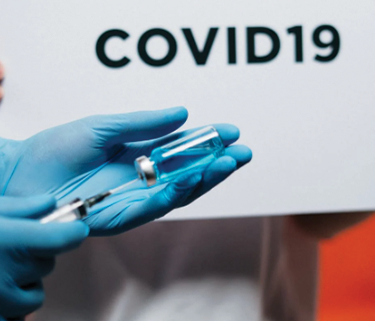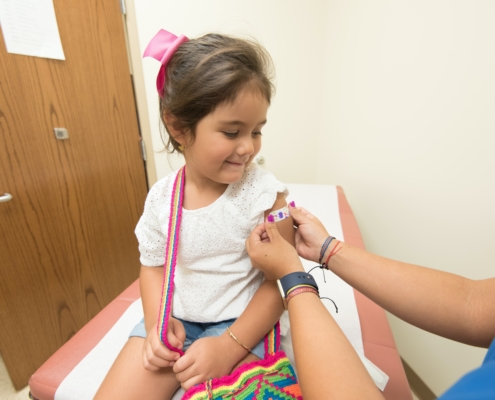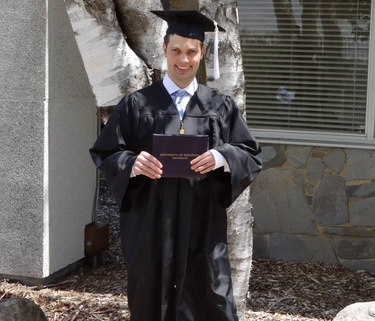For people with intellectual and developmental disabilities (IDD), digital access and skills are a critical component of gaining independence. In 2022, The Arc and Comcast NBCUniversal once again teamed up to open digital doors for and with people with IDD.
The Arc and Comcast have a long-standing partnership to do this work. The Arc’s national network of nearly 600 chapters provides vital resources and services to individuals with IDD and their families to promote greater independence and opportunity in the community, and through this partnership, since 2017, more than 2,579 clients have received basic digital skills training at 19 sites around the country.
The program continues to expand what’s possible for people with IDD in their professional and personal lives—giving them the tools to chart their own course, just like we all want to do.
Expanding Self-Determination and Independence
Cathy and Ross, The Arc of Greater Indianapolis (Indiana)
Cathy and Ross each live very independent lives in their community, with their chapter supporting their day-to-day activities and routines. Both deeply wanted more time in their respective homes to unwind and safely manage their own needs without staff hovering around them in case they were needed. As chapter staff member Rita Davis noted, “After you’ve been around others all day, as much as you may like them, there are times when you just want to be alone!” However, both of their families were concerned about their safety in the home with no support staff nearby. Each was coached in how to use tools like the Ring Camera and messaging on their phones to monitor their own environments and reassure/check in with family or chapter staff if they needed assistance. Now, Ross is enjoying greater independence and exploring how to self-administer his own medications, and Cathy can decompress by herself home. Their families are thrilled—and relieved—to have a system in place that will keep them safe while supporting them to live more independently and manage their daily lives.
Courtney, The Arc Southern Maryland
Courtney lives with her mother and has been dependent on her for all her scheduling and transportation needs. Unfortunately, her mother was in a car accident which left them without a vehicle. Courtney has many regularly scheduled appointments that she must get to each week. Through her coaching, she was provided with and taught how to use a smartphone that she could use to reach out to others in her network for rides, find and map out public transportation, and schedule and confirm some of her own appointments with her cardiologist, other doctors, and therapists. Her mother has been able to shift some responsibility to Courtney, and an added benefit of her new phone is the ability to stay better connected to friends and family.
India, The Arc Southern Maryland
India lives with her parents and is nonspeaking, so she has historically relied on various vocalizations and pointing to communicate her needs and desires with her caregivers. Her coaching focused on the adoption of new alternative and augmentative communication (AAC) tools to broaden her options for expressing herself. Currently, India is exploring how to use several AAC apps and for the first time ever, she can communicate using words through Touch Chat, which uses a digital word board with photos. This will impact every single aspect of India’s life and give her the tools to advocate for her needs, build relationships, and direct her own life.
Her father John said, “We can better understand her, and we’ll feel more confident she’ll be ok when she’s not with us.”
Professional Development and Furthering Employment Skills
Rochelle, The Arc of Greater Indianapolis (Indiana)
Rochelle’s initial tech coaching sessions focused on completing online employment applications. To her delight, she landed a job at Arby’s consisting of 20 hours a week cleaning the lobby and dining areas. While she was glad to have the job, she was quickly becoming a little bored with it but did not have the computer skills needed to advance in her role. Her coaching sessions continued as staff worked to expand her digital skillset. As a result, after just two months on the job, she was promoted to the drive-through window to take customer orders on the computer. She also uses their computer system to clock in and out, retrieve pay stubs, and complete mandatory trainings. Where Rochelle was initially nervous about using a computer, she now approaches new digital challenges with an improved sense of optimism and confidence and can continue to progress in her career.
Sidney, New Star Services (Illinois)
Sidney wanted to learn how to program his watch to remind him when it was time to go on breaks and lunch and when to clock out for the day and head home, so that he did not have to rely on coworkers or his job coach to remind him. He has learned how to stop, start, and reset timers on his watch and as a result has become far more independent with his time management on the job. Not having to rely on his coworkers or supervisor to keep him on schedule has been a great source of pride for Sidney and has enabled him to turn his attention to learning new employment-based skills.
Bobby, The Arc of Weld County (Colorado)
Bobby has had no access to technology besides his phone. He only recently restarted attending a day program once per week, and his only social interactions were at work. His coaching focused on not only building skills to explore hobbies like music and coding, but also how to expand his network and build relationships he can maintain outside of in-person activities. He learned about internet safety, using various apps, and using Gmail and Zoom. His newfound digital literacy has opened the door for him to take on leadership roles as well. He is now being considered for a board position with The Arc of Weld County, of which virtual access and reviewing materials via email is required. His wife has also received coaching for her needs and goals and is the longest current employee at the agency!
“When we provide access to digital skills training, we create opportunities and pathways to independence that can be life-changing, especially for those living with disabilities,” said Dalila Wilson-Scott, Executive Vice President and Chief Diversity Officer of Comcast Corporation and President of the Comcast NBCUniversal Foundation. “Partnerships like the one we’re proud to share with The Arc – and as a result, the many lives we’re able to help impact – are at the heart of what drives us each and every day at Comcast. We’re so very honored to continue to grow our work together and help enrich even more lives.”
Comcast’s partnership with The Arc is part of Project UP, the company’s comprehensive effort to address digital inequities and help build a future of unlimited possibilities. Backed by a $1 billion commitment to reach 50 million people, Project UP is focused on connecting people to the Internet, advancing economic mobility, and opening doors for the next generation of innovators, entrepreneurs, storytellers, and creators.





 This year we are facing a triple threat for flu season: the flu, Covid-19, and Respiratory Syncytial Virus Infection (RSV). RSV is a viral respiratory infection that usually causes cold-like symptoms. Hospitals are currently seeing an alarming increase in pediatric cases of RSV and some are
This year we are facing a triple threat for flu season: the flu, Covid-19, and Respiratory Syncytial Virus Infection (RSV). RSV is a viral respiratory infection that usually causes cold-like symptoms. Hospitals are currently seeing an alarming increase in pediatric cases of RSV and some are  The Arc of the United States has hired its first-ever Senior Executive Officer of Development: Karim Merchant. Karim will lead a team to develop, implement, and manage fundraising strategies that support The Arc’s longstanding commitment to advocate for and serve people with IDD. He will create and implement a comprehensive growth strategy and fundraising plan to cultivate private and public philanthropic support advancing The Arc’s vision for people with IDD to be valued members of their community who can achieve their full potential and a future that is secure. As The Arc approaches its 75th anniversary, Karim will work to build a stronger base of financial support for the national organization, including relaunching The Arc US Foundation, to assure that its advocacy and services will continue for decades to come and give families caring for a person with IDD peace of mind.
The Arc of the United States has hired its first-ever Senior Executive Officer of Development: Karim Merchant. Karim will lead a team to develop, implement, and manage fundraising strategies that support The Arc’s longstanding commitment to advocate for and serve people with IDD. He will create and implement a comprehensive growth strategy and fundraising plan to cultivate private and public philanthropic support advancing The Arc’s vision for people with IDD to be valued members of their community who can achieve their full potential and a future that is secure. As The Arc approaches its 75th anniversary, Karim will work to build a stronger base of financial support for the national organization, including relaunching The Arc US Foundation, to assure that its advocacy and services will continue for decades to come and give families caring for a person with IDD peace of mind.



 Throughout my life there was one phrase that was ingrained in my brain: expect the best from myself. I always believed if there was something I really wanted to do, that I should not let my disabilities stop me. No matter how challenging or difficult something might be, I would work my hardest to succeed.
Throughout my life there was one phrase that was ingrained in my brain: expect the best from myself. I always believed if there was something I really wanted to do, that I should not let my disabilities stop me. No matter how challenging or difficult something might be, I would work my hardest to succeed.






